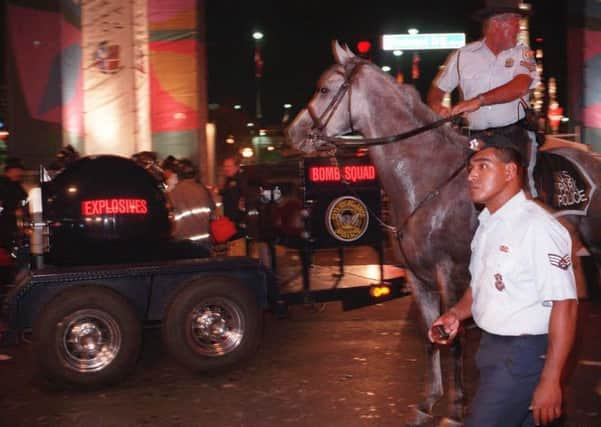Pipe Bomb Hits Olympic City: The Week That Was


Mr Major said £100m of Lottery cash would be awarded to successful bidders for a network of centres for sporting excellence. The academy would concentrate on 20 sports and offer state-of-the-art training facilities, top coaches and on-site medical equipment for the treatment of sporting injuries. The Sports Council was now inviting detailed plans from prospective host cities and the winning scheme would be announced in January, followed by the start of building work soon afterwards.
Shortly after this good news for young people’s sporting ambitions,
Advertisement
Hide AdAdvertisement
Hide Ada bomb exploded at a crowded concert in Atlanta, Georgia – the city hosting the 1996 Olympics. The pipe bomb killed two people and injured 111.
Police said they had received a warning call, but too late to clear the 21-acre Olympic Park of the happy crowd who were listening to the music at 0125 local time when the blast occurred. President Bill Clinton said the Games would go on: “We cannot let terror win. That is not the American way.”
The perpetrator, Eric Rudolph, evaded police for two years and was then brought to justice – receiving four life sentences for this and other bombings, including anti-gay and anti-abortion attacks.
A Parliamentary attempt to curb the wheel clampers who were making life a misery for scores of hapless victims was launched in Westminster. Liberal Democrat MP Diana Maddock presented a Bill in the Commons which would give local authorities new powers to require professional wheel clampers to be licensed.
Advertisement
Hide AdAdvertisement
Hide AdThe move came hot on the heels of the launch of a The Yorkshire Post campaign to outlaw cowboys who used entrapment, deception and intimidation to force motorists to hand over large sums of money. Barely any regulations existed in England and Wales to control the practice.
Firms could set their own release fees and, when their victims could or would not pay up immediately, they set their own tow-away fees at upwards of £200, adding storage fees of up to £80 a day. The YP’s eight-point plan to control the industry included setting up a national code of practice, standardised and reasonable fines, written contracts authorising clamping on private land, and the creation of an effective appeals procedure.
Research largely carried out at Leeds University revealed this week that cot deaths could be cut by almost two thirds if parents stopped smoking.
Scientists uncovered alarming new evidence which for the first time established the increased risk of sudden infant death syndrome (SIDS) from tobacco smoke inhaled after birth. The findings were based on 195 cot deaths over a two year period and prompted officials to draw up new advice on ways of reducing the risk of tragedy, including a completely smoke-free environment in the home.
Advertisement
Hide AdAdvertisement
Hide AdThe RSPCA were dealing with an unexpected result of the hot weather, after reports of boozed-up badgers staggering tipsily about North Yorkshire. Driven out of their setts by the heat, they were heading for orchards and scoffing large amounts of fermenting fruit. One injured brock had to be rescued from a swimming pool at Easingwold, where he had apparently decided to take a cooling dip – although the pool was actually empty at the time.